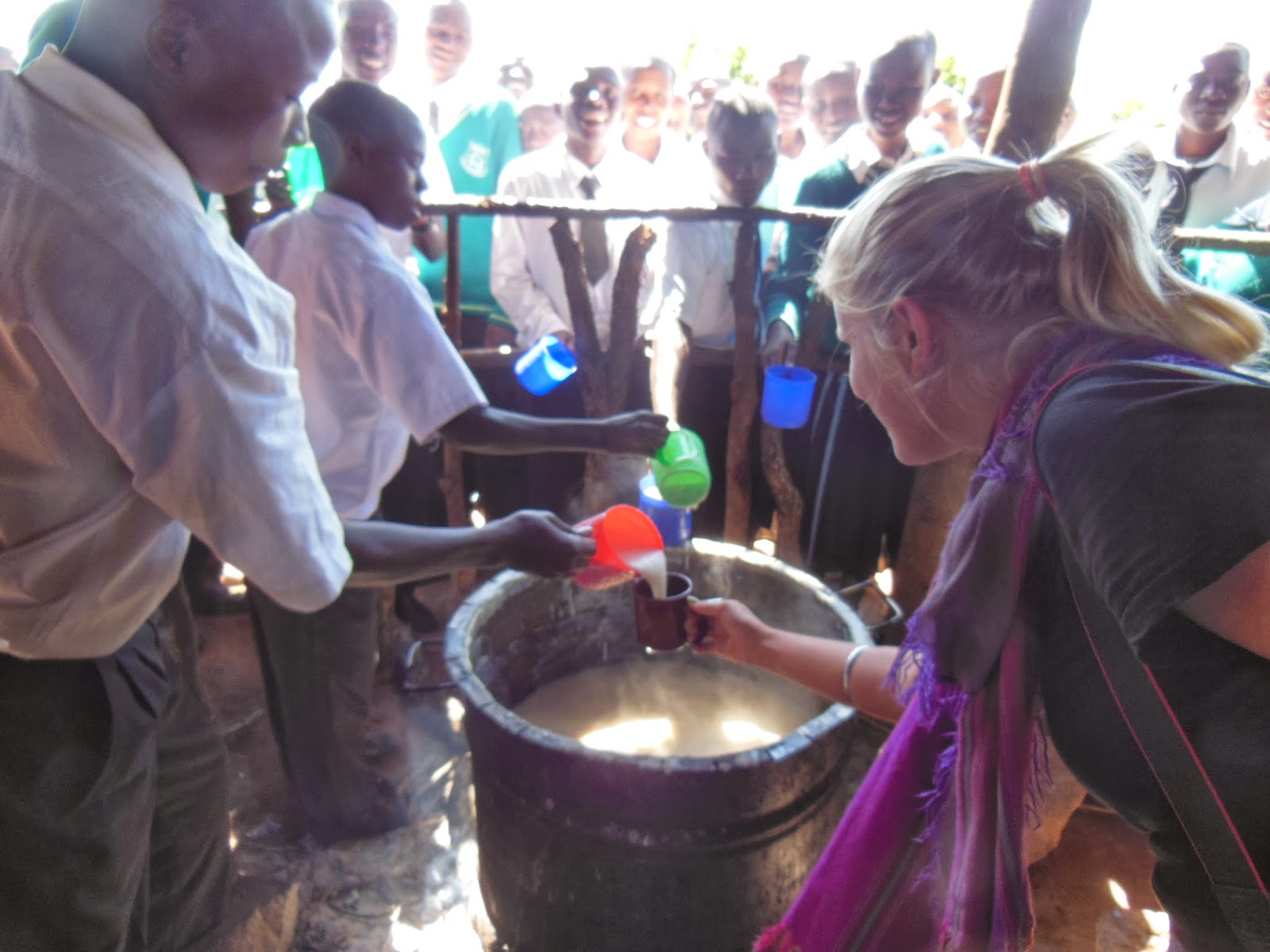Habari!
All have the week off from school and are hopefully enjoying your break, but I've been getting a lot of questions about what I ate while I was in Tanzania, as well as what Tanzanians like to eat, so I figured I'd write about it this week so you can enjoy reading all about it when you're back in shule ("school" - pronounced shoo-lay)!
As I was going through the hundreds and hundreds of photographs I took during my time in Tanzania, I realized that almost none of them are of food! I took a couple of pictures of things that I made, and a couple of pictures of people cooking, but rarely did I ever take out my camera before eating....I wonder if I thought that it would be inappropriate to ask!
Anyways, between my photos and some help from the internet, I've got some photos to show you of popular Tanzanian cuisine. This does not include everything, but does cover a lot of what you could find if you went to a small restaurant.
Let's start with breakfast foods:
We've got chapati - which is kind of like an oily tortilla, mandazi, which is a semi-sweet bread bun, and uji, which is a porridge made out of ground up corn and water.
 |
| Chapati (photo courtesy of Google) |
 |
| Here I am getting a scoop of uji into my teacup at Bukililo Secondary School |
 |
| Mandazi - most commonly eaten after dunked into tea! Mandazi aren't only limited to breakfast, but are also commonly eaten as a snack or served to guests. |
 |
| Of course, all of this must be served with some hot tea! You can either boil tea leaves into water, or you boil hot milk and add a teabag and sugar. I prefer milky tea! |
Lunch foods and dinner foods are largely the same -- families typically eat breakfast, and then eat either once again in the evening, or eat in the afternoon (4pm) and then again much later in the evening (10pm). This depends on what jobs they have, as well as if they can afford to eat two or three times a day.
Because cooking takes up so much time, I only ate breakfast and dinner around 8pm. But before you eat, you need to make sure you know where you're going to cook!
Here are three options:
 |
| You might cook dinner like Mama Kabibi here, with a pot over a small firewood fire in the open... |
 |
| Or in a jiko, or stove, like I did...using charcoal and a bit of firewood to get the coals hot... |
 |
| Or in a handbuilt shelter/hut like one of my students -- also using firewood she and her housemates collected! |
Once you figured out where you're cooking, you need to decide what you are cooking!
 |
| This is the fried chicken that Mama Kabibi was stirring up before! |
 |
| Or, you can have boiled bananas, mixed in a tomato and vegetable stew (I made this!) Boiled bananas can alternatively be mixed with beans as opposed to tomatoes. |
 |
| So here's a HUGE plate of boiled bananas and beans! It's been covered with a boiled banana leaf to help keep it warm while everyone got ready to sit down. |
 |
| Another great snack is bananas! These ones aren't ripe yet, but these tiny bananas are very sweet, and very delicious! People also might snack on an avocado too. |
 |
| Grilled meats are always loved - typically goat, cow or chicken, but if you ask around you might also find pig! Tanzanians don't typically eat pork though, so if it's served, it's very hush hush. |
-------
So, that's a quick adventure through some typical Tanzanian food!
What do you think? Did you see something that you would want to try?
What looks similar to what you eat at home? What doesn't?
My favorite Tanzanian food is definitely the chips mayai - or the french fry omelette. Oddly, even in neighboring countries this dish is hard to find....but it's so delicious, I'm not sure why it isn't!
As for customs, it really depends on the area. Different tribes have different customs, and different regions also have different customs. In cities and now in many homes, silverware is fairly common (or at least they have it in case guests come). However, most of the time, meals are eaten with your right hand.
[Food is not allowed to be touched by your left hand because they have a bathroom hand (left) that is used for only that and an eating hand (right) in order not to mix the two and get sick]
One thing is for certain -- if you ever visit someone's house, it is expected that you serve them food before they leave. This can be anything from some biscuits on a plate to a full meal...which definitely takes time to prepare!
And when you are visiting someone's house and they serve you food, you must always take seconds...and maybe even thirds! Whenever I knew I was going to visit, I would make sure to be really hungry before I got over there so they didn't think I didn't like their cooking!
I should also add that napkins are not used except in some restaurants. Instead, a waiter, or your host, will bring over a jug of water, a basin, and a bar of soap before you begin eating and again after you finish eating for you to wash your hands.
I think it's a great custom -- and a great way to save the trees!
----
Baadaye,
Marisa










